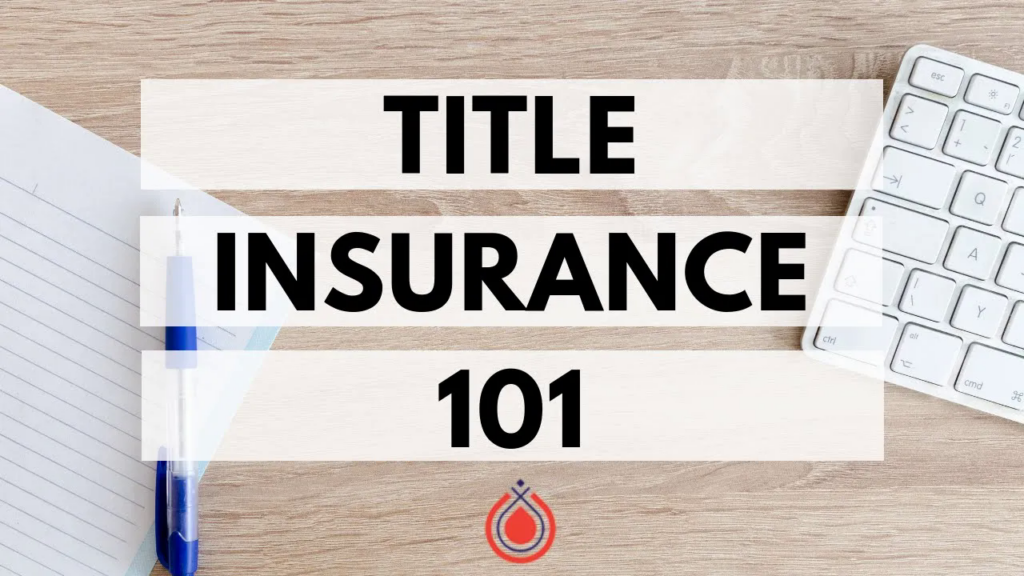
When you buy a property, there’s an important protection you need to know about: title insurance. If you own property, you probably have it – but you might not know exactly what it does. Let’s break it down in simple terms.
What is Title Insurance?
Title insurance is a special kind of protection you get when buying property. It protects your legal rights and interests in your ownership of the property. Think of it as a safety net for your property purchase. You’ll usually get it during the closing process, which is the final step of buying a property.
How Do You Get Title Insurance?
Getting title insurance is pretty straightforward. Depending on where you live, you’ll work with either:
- A title company.
- A law firm.
The choice isn’t up to you – it depends on your state’s rules. Some states require title companies, while others let law firms handle the work. In Colorado title insurance is purchased from a title company.
Why It Matters
When you’re buying a home or any real estate, title insurance is a must-have. It’s not just another fee – it’s a crucial protection for your investment. Most states require it because it helps prevent problems down the road.
Whether you’re a first-time buyer or an experienced investor, understanding title insurance is key to protecting your property rights. In the following sections, we’ll explore the different types of coverage and what they mean for you.
Types of Title Insurance Coverage

There are two types of title insurance. There’s the owner’s policy, and then there’s homeowner’s insurance.
When buying a property, you’ll come across two main types of title insurance. Let’s look at what they are and why they matter.
The Two Types of Coverage
- Owner’s Policy
- This is the basic type that most states require.
- It makes sure you have the right to buy the property.
- Title companies handle this coverage.
- Mortgage Policy
- This is the policy required by your lender if you have a mortgage.
- It gives the lender legal protections.
Who Pays for Title Insurance?
Usually, you (the buyer) pay for mortgage policy, but here in Colorado the seller usually pays for the owners policy. Who pays the owner’s policy is negotiable, but the reason the seller’s have traditionally paid for it is so they can guarantee clear title to the buyer.
Important Tips
Before starting the lending process:
- Ask your lender who will pay for the insurance.
- Find out how much coverage they require.
- Discuss what type of policy you need.
Working with Title Companies
Title companies play a key role in this process. They:
- Check property records and perform a title search.
- Check the chain of title to make sure the seller has clear title and can legally transfer ownership.
- Provide a “title commitment” which lists all the required steps and items needed to issue the title insurance policy.
Remember, while some title insurance is required, you can always choose to buy owner’s extended coverage for more protection. Talk with your lender or agent about what’s best for your situation.
Understanding Title Searches and Clear Title

You want to guarantee clear title on a property make sure you get title insurance.
What is a Title Search?
When you buy a property, the title company does a special check called a title search. This search looks at who has owned the property since it first became a piece of land that could be sold. It’s like tracing the property’s family tree to make sure everything is in order.
Clear Title vs. Cloud on Title
A clear title means there are no problems with who owns the property. It shows that the seller has the right to sell it to you. Sometimes there can be problems, called a “cloud on title.” This happens when:
- There are gaps in ownership history.
- Someone died and their heirs weren’t found.
- The property was sold at a tax auction.
- paperwork wasn’t filed correctly.
Real Example of a Title Problem
Here’s a real case: A property sale almost couldn’t close because of a cloud on title. The problem? The owner’s name on the property papers didn’t match their LLC name. They had to fix this before the sale could happen.
How Title Insurance Helps
Title insurance protects you if someone claims they own your property. For example, if someone says:
- “My uncle left me this property”
- “I was away and didn’t know about the sale”
- “I have rights to this land”
The title insurance company will:
- Help prove your ownership.
- Cover legal costs.
- Protect your investment.
The Title Search Process
During a title search, experts check:
- All previous owners.
- Any legal issues.
- Property records.
- Tax records.
- Inheritance issues.
Most properties have clear titles because sellers usually fix any problems before selling. But title insurance gives you peace of mind, knowing you’re protected if any ownership issues come up later.
Real-World Title Insurance Scenarios
Let’s look at some real cases that show why title insurance is so important. These stories will help you understand how title insurance protects property owners.
When Someone Claims Your Property
What happens if someone shows up at your door claiming they own your property? Here’s what to do:
- Show them your deed.
- Call law enforcement if needed.
- Let them contest it legally at the courthouse.
Your title insurance protects you in these situations. The title company will help defend your ownership rights.
The Three Brothers Case Study
That brother could come back and say, uh-uh, Clayton, you do not own this property. I never signed off on this.
Here’s a real story from New Jersey that shows why checking ownership is crucial:
- Two brothers wanted to sell a family property.
- They hadn’t talked to their third brother in years.
- The third brother had equal rights to the property.
- Without his signature, they couldn’t sell.
- If they had sold without his approval, it would create a “cloud on title”.
Why This Matters
This case teaches us important lessons:
- All owners must agree to sell a property.
- Missing signatures can stop a sale.
- Title insurance protects buyers from hidden owners.
- Family disputes can affect property rights.
How Title Insurance Helps
If you buy a property and someone later claims ownership, title insurance:
- Covers your legal costs.
- Protects your ownership rights.
- Handles the dispute process.
- Gives you peace of mind.
What to Remember
- Always get title insurance.
- Make sure all owners sign off on a sale.
- Keep your deed and insurance documents safe.
- Contact your title company if ownership issues arise.
Title insurance might seem like just another cost, but these real stories show how it protects your investment. It’s your shield against unexpected claims on your property.
Additional Title Insurance Coverage and Considerations

Owner’s Extended Coverage Protection with the Title Policy
When buying a home, you can get extra protection beyond basic title insurance. Title companies offer a special homeowner’s policy. This is different from regular homeowner’s insurance that covers things like fire or theft.
What Owner’s Extended Coverage Includes
This extra coverage can protect you from:
- Unpermitted structures.
- Zoning issues.
- Hidden problems.
Real Examples of Coverage
Here’s what this extra coverage can help with:
- Unpermitted Structures: If you find a shed that the previous owner built without permits, the policy could help cover the costs.
- Zoning Problems: Sometimes part of your land might be zoned differently than you thought. The policy can help if you need to deal with zoning issues.
- City Ordinances: Protection against problems with local rules and regulations.
- Hidden Issues: Coverage for problems that weren’t found during the home inspection, like foundation issues.
Making Smart Choices
Consider these points when deciding on extra coverage:
- It’s often worth it for your primary home.
- May not be needed for rental properties.
- Seller’s will usually pay for it, although it’s negotiable.
- Sometimes lenders require it.
- Read the policy details carefully.
Cost vs. Benefit
The value of owner’s extended coverage depends on your situation:
- Primary homes might benefit more.
- Rental properties may not need it.
- Check costs and what’s covered.
- Consider your risk tolerance.
Final Thoughts
Title insurance is an essential part of buying and owning property in order to protect your legal rights and interests in your property. If you can negotiate for the seller to pay for it than it’s a no brainer, but even if they won’t, and you are paying it’s absolutely worth it! Don’t risk any ownership or lien issues with your investment, make sure you are protected with title insurance!
